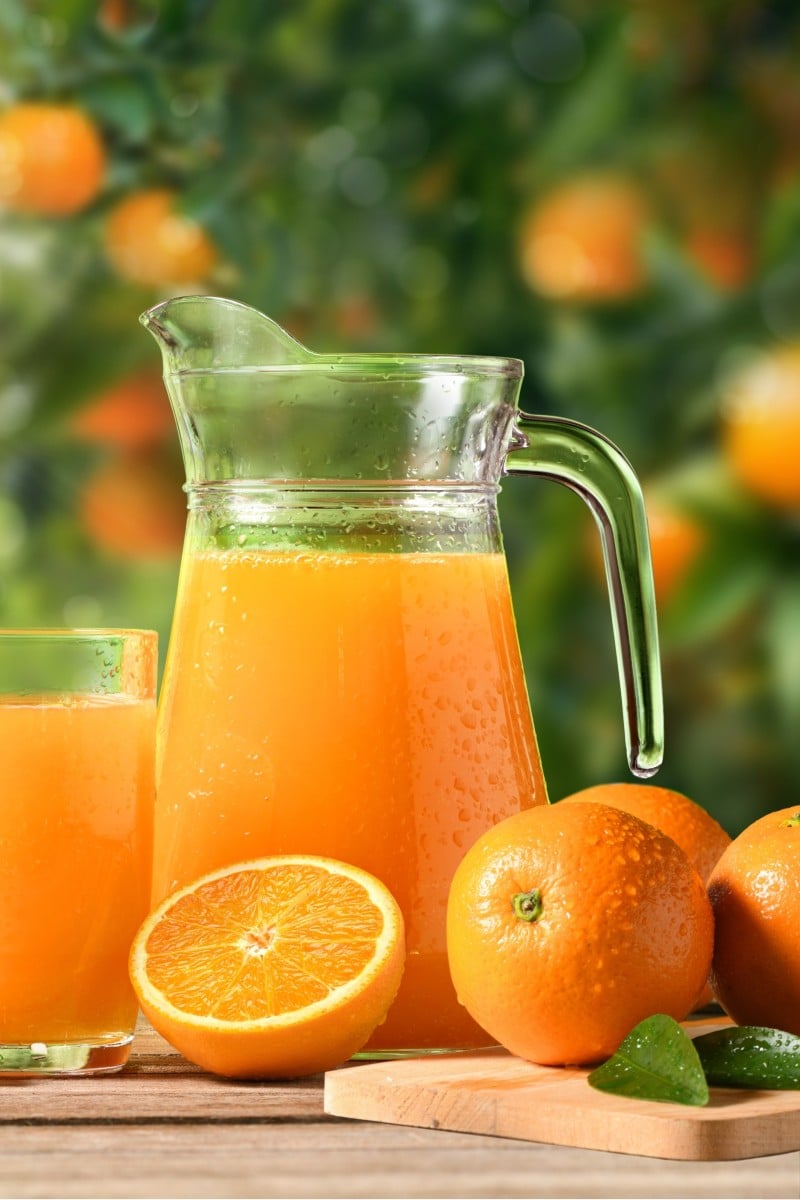
From cracking your knuckles to drinking orange juice for colds, these young minds challenge long-held beliefs with evidence-based reasoning
 Orange juice is good, but can it cure a cold? Photo: Shutterstock
Orange juice is good, but can it cure a cold? Photo: ShutterstockThis week’s question: What is something that only Gen Z can understand?
To take part, drop us a line via this form or email us at [email protected] by 12pm on September 11. Tell us your name, age and school.
Abby Ng Hiu-yuet, 18, Holy Family Canossian College: When it comes to mental health, there is a general perception that if you have a mental health issue, you are unlikely to recover. Nevertheless, this is groundless and preposterous. Mental disorders are curable through a holistic approach which combines pharmacological therapy, counselling and lifestyle change. People with mental health conditions can see the light at the end of the tunnel and embark on rehabilitation.
Peter Chui Pui-ling, 15, Maryknoll Fathers’ School: A common myth I have heard about health is that you need to drink a glass of orange juice when you have a cold; its purpose is to help you cure it. However, recent studies have clarified that this is a misconception and may even worsen your condition, as orange juice contains citric acid, irritating your fragile and inflamed throat. In addition to this myth, researchers suggest that we should drink adequate water and get enough sleep to fight against the cold we are suffering from.
Aaron Dou, 15, Hong Kong Taoist Association Tang Hin Memorial Secondary School: We often see the characters in cartoons and TV dramas rub their eyes when they wake up or feel their eyes itch. However, we shouldn’t do that. Rubbing our eyes frequently will harm the cornea, which causes it to become thinner. Then, it gives the cornea a cone shape and increases the possibility of getting astigmatism. Moreover, we often hear that eating carrots can improve our eyesight. Although carrots are rich in vitamin A, essential for good vision, eating more than the recommended daily dose won’t help fix issues like nearsightedness or farsightedness. Getting a suitable amount of vitamin A and a balanced diet is recommended.
Matt Wai Lok-hang, 12, Hong Kong Tang King Po College: Many people believe that if you drop a piece of food and pick it up within five seconds, it’s still safe to eat. However, bacteria can contaminate food almost instantly upon contact with the floor. Therefore, this rule is simply misguided.
Nicole Chan Cheuk-ying, 15, Sha Tin Tsung Tsin Secondary School: A common myth about health I have heard is that we should drink eight cups of water daily. However, this is only an estimation because the amount of water we need depends on many factors. For example, different ages, genders and environments affect our water needs. Therefore, instead of believing the “eight cups of water” myth, we should drink the water we genuinely need.
Heer Donda, 14, King George V School: The most common myth I have heard is that sugar makes children hyperactive. However, no common relation has actually been proven between the two.
Ian Wong Hui-yiu, 16, Sing Yin Secondary School: Cracking your knuckles has long been linked to arthritis, but this myth is just that – a myth! The pop you hear is caused by gas bubbles bursting in the synovial fluid that lubricates your joints. Research shows no connection between knuckle cracking and arthritis risk. Habitual knuckle crackers often report no adverse effects. So, crack away if you enjoy it – just remember to maintain joint health through regular exercise and a balanced diet.
Top 10: If you could design a new school uniform, what would it look like?
He Mujia, 11, St Paul’s Co-educational College Primary School: In Chinese history, snakes were stereotyped as avengers with hearts entwined with spidery webs of vengeance. Therefore, whenever the urge to take revenge dominates one’s mind, one’s thoughts become slithering snakes. The snakes would then slowly take a toll on your health, making you sick. Even though this myth was built up by our Chinese ancestors’ imagination, it still left us with a valuable lesson – we should always forgive others’ mishaps instead of seeking revenge.
Yeung King-yin, 12, Hong Kong Tang King Po College: My mum always says to apply ice to a burn, but this can do more harm than good. The cold temperature may cause frostbite and further damage the skin. Additionally, some people recommend using common home remedies like butter or mayonnaise on burns, but these can trap heat and prolong the burning sensation. It’s essential to use proper first aid methods instead.
Lam See-sun, 18, Chinese University of Hong Kong: My mother always picked out the fisheye for me whenever we had steamed fish for dinner and reminded me to eat it if I wanted pretty eyes. It is a common myth that fisheyes improve one’s eyesight. In general, fish are rich in antioxidants and omega-3 fatty acids, considered sources of healthy nutrients for the human body. However, there is simply no evidence suggesting fish eyes contain nutrients directly linked to improving eyesight. Therefore, this myth is yet to be confirmed and is considered superstitious.
